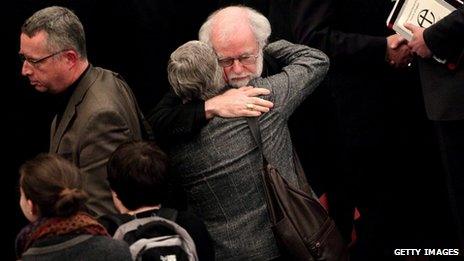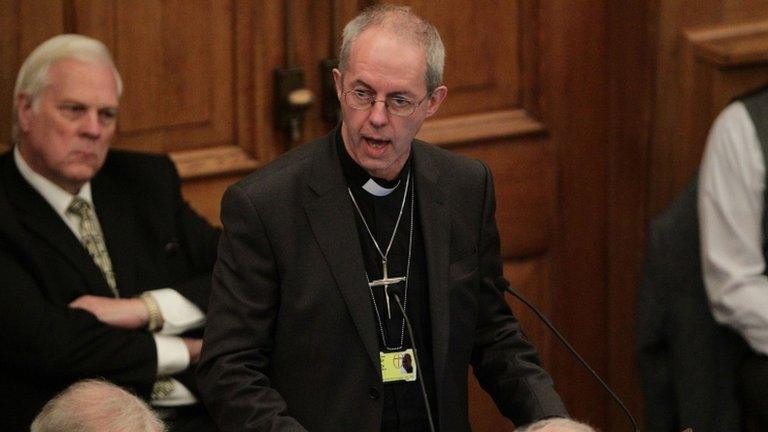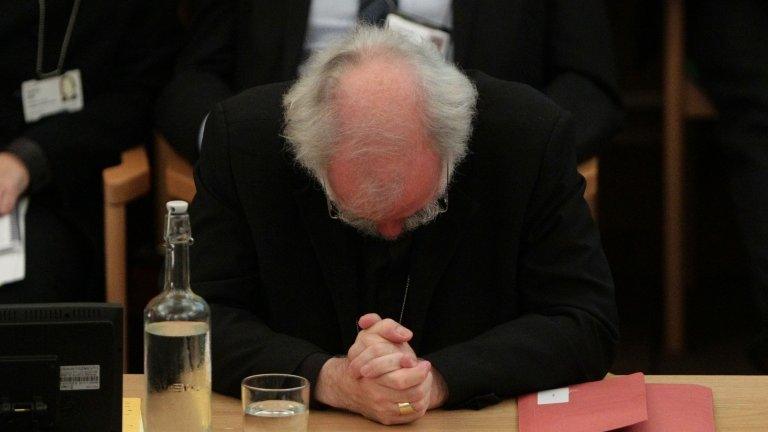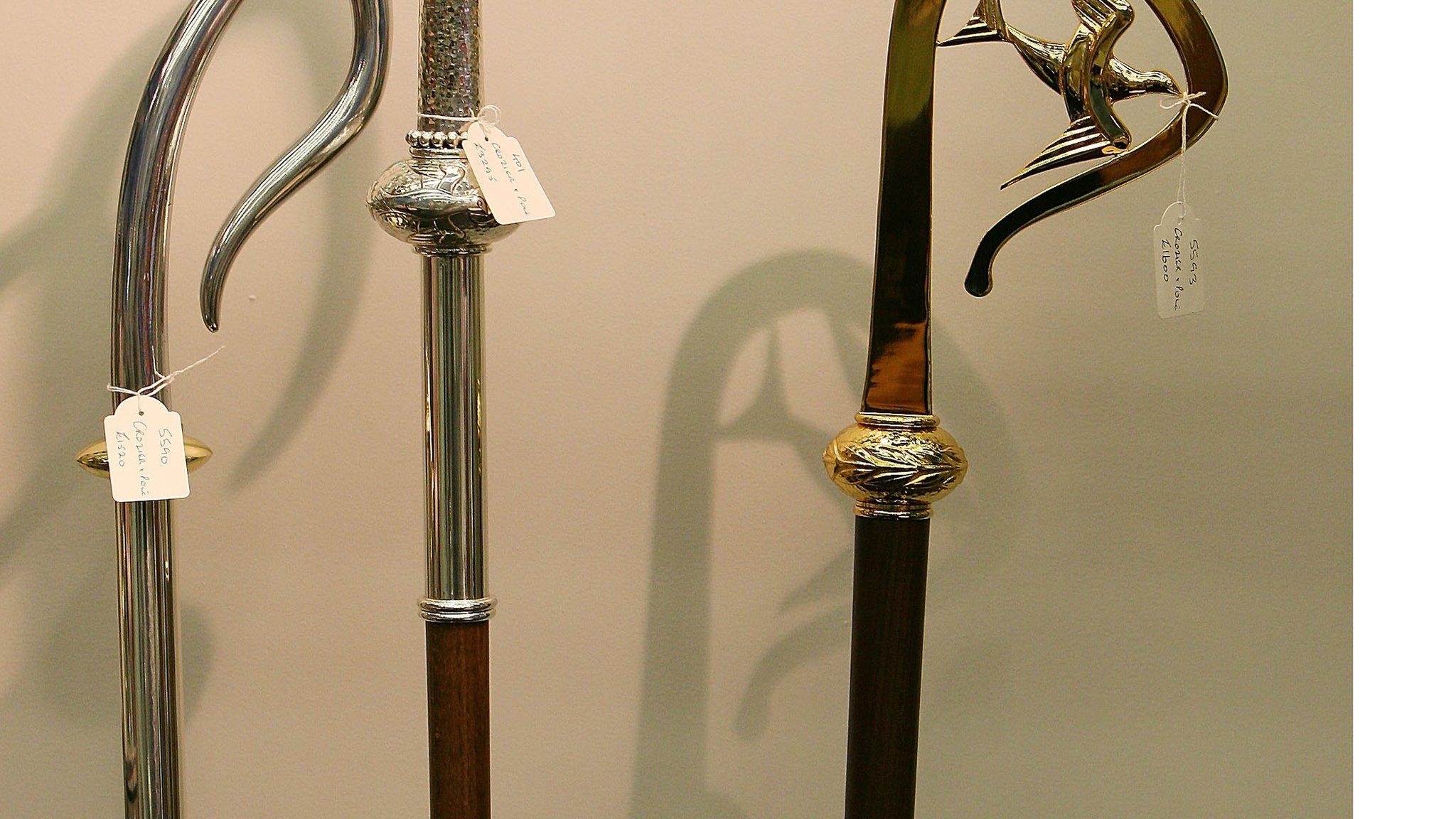Women bishops vote: media reaction
- Published

The media is reflecting on the narrow rejection of the ordination of women bishops in the Church of England by its ruling general synod.
The proposed legislation paving the way for the change fell short by six votes in the House of Laity - one of the synod's three houses.
General synod voting rules meant that while 324 members were in favour of the change, and just 122 against, it was not passed.
The next Archbishop of Canterbury, Rt Rev Justin Welby, has called the rejection a "very grim day", and the retiring Archbiship - the Most Reverend Rowan Williams - said the church had lost "credibility".
Commentators have pondered what the vote means for the Church of England.
Dr Tim Stanley in the Daily Telegraph
"The Anglican Church has evolved into something like an unofficial branch of the welfare state, and there's a general feeling that it has a duty to be as representative as the rest of our public sector. A vote against women bishops is certainly a pedantic vote against equality in a church that has already accepted women priests.
"If a woman can be a priest, why can she not make other priests priests? It seems spiteful and unfair."
Andrew Brown in the Guardian, external
"I think I have just watched the Church of England commit suicide. It was a very long and very boring process.
"But at the end of nine hours' rehearsal of stale arguments made in bad faith the General Synod took a decisive turn into fantasy, or stumbled over its own rules, and failed, by a very small margin, to gain the complicated majorities required to make women bishops."
Independent editorial, external
"To the secular world, the case for women to become bishops is the same as that regarding the priesthood. It is a matter of equality and inclusion. In fairness, most people inside the Church agree, seeing inclusion and equality before God as central values of the Christian gospel.
"The majority of bishops, priests and lay members of the Church have long accepted that. But, because of the highly cautious structures of the established Church, a two-thirds majority was needed in all three houses of its General Synod to effect change.
"And that has allowed a recalcitrant minority to prevent the Church from entering the 20th, let alone the 21st, century."
"What happened yesterday will be horribly familiar to leaders of political parties that have lost their way. The process was hijacked by a small but highly motivated group of fundamentalists more interested in factional organisation, textual analysis and strict orthodoxy than in the real world and how people live their lives.
"When such people take over any body it drifts away from common sense."
"Yes, we respect the theological objections of those in the House of Laity who, by the narrowest of margins, denied supporters of the move the two-thirds majority they needed.
"But the vote has condemned the Church to years more infighting over a question which most of the nation finds abstruse or simply bewildering.
"It also highlights a worrying divide between churchgoers and the clergy, who overwhelmingly supported promoting women, while undermining Justin Welby even before he has taken up his post as Archbishop of Canterbury."
David Blackburn in the Spectator, external
"As a relatively faithful parishioner of the CofE, this affair does surprise me in one respect.
"The Church of England has contrived to defend "tradition" on this occasion when arguably it should not have done so, while at other times it has "modernised" when it clearly should not have done so.
"To adapt Edward Gibbon's famous remark about the decline and fall of the Roman Empire, institutions that behave in this manner risk collapsing under the weight of their own stupendous contradictions."
- Published21 November 2012

- Published21 November 2012

- Published16 November 2014
